'Thousands of women will have had this - but we had no idea until we were rushed to mental wards'
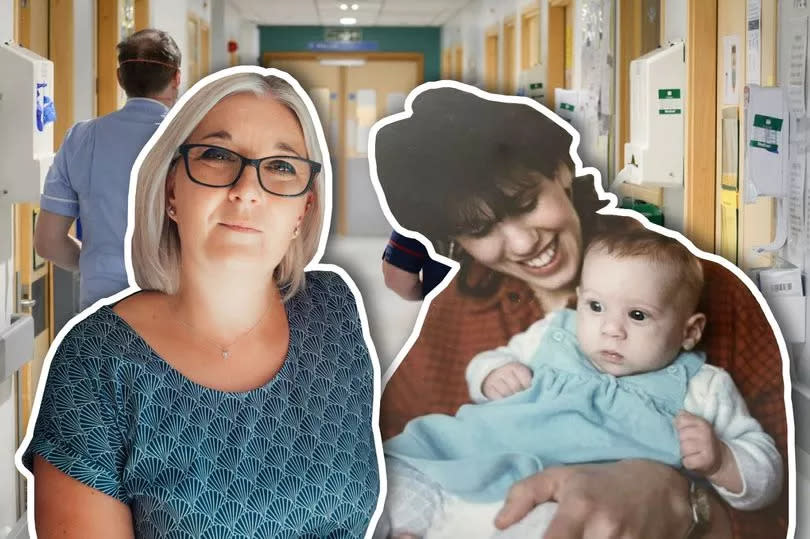
‘I would see flashes out of the corner of my eye, hearing whispers, hallucinating’, says 44-year-old Hannah. ‘There was a day I was crouched in the bath like a baby, my father found me like that’, explains Karen, 63.
The eerily similar stories of two mothers, decades apart. Neither had ever heard of the condition they would soon learn they had – until they were rushed to psychiatric wards, being told they were in a medical emergency.
Almost all families will be familiar with the ‘baby blues’ which leave new mothers feeling tearful and down, some will know the grief of postnatal depression. But postpartum psychosis remains a complete unknown for so many – despite affecting some 1 in 500 births.
In years gone by, little information was available about the serious mental illness that can rapidly set in after birth. Many women have faced the terrifying signs – hallucinations, feeling manic, behaving completely out of character – completely alone, without help or knowledge of what was happening to them.
Karen Savage, from Salford, experienced postpartum psychosis 37 years ago, and faced electroshock therapy as her treatment – as well as a blanket of secrecy that came with having a severe mental health episode in the late 1980s. Hannah Bissett, who lives in North Yorkshire, was diagnosed some years later in 2009.
Her treatment was more gentle, but she still encountered difficulties trying to learn about the condition. The Manchester Evening News spoke to the two women at the forefront of the campaign to make sure other families have a better experience.
Join our WhatsApp Top Stories and Breaking News group by clicking this link.
‘I just thought this was what being a new mum was like – then I was being rushed to hospital’
The ‘baby blues’ are so common that they are ‘considered normal’ in the first two weeks after giving birth, says the NHS. If symptoms last longer or start later, it could be postnatal depression, which can start any time in the first year after giving birth and affects around 1 in 100 women.
But postpartum psychosis is still relatively unknown. “It’s rare, but it’s not that rare - it’s one in 500 births, that’s about 1,400 women-a-year,” explains Hannah, who is now a national coordinator for the Action on Postpartum Psychosis (APP) charity.
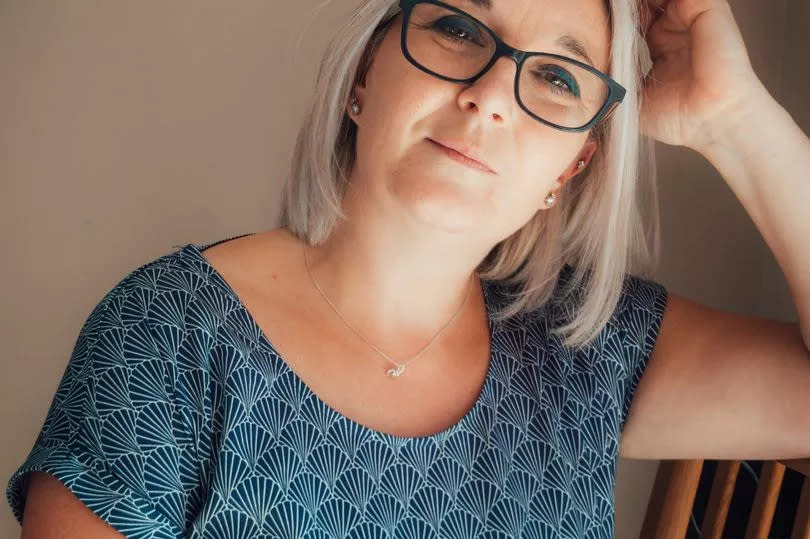
Even in 2009, Hannah had never heard of the crisis condition medics were suddenly telling her she was having, despite showing ‘classic symptoms’.
“Quickly after my son’s birth, which was not a great birth as it had been traumatic, I became very severely unwell. I was quite in denial that anything was wrong,” she says.
“Before I was admitted to hospital, I had all the classic symptoms. I wasn't able to sleep, my mind was going a million miles an hour, I'd flick between being okay and not okay.
“I’d not be able to hold conversations, but when questioned, I'd click back. I’d say 'there's nothing wrong', I'd never heard of this experience before.
“And also, this was my first baby – I didn't know anything wasn't normal, I just thought this is what it was like. I thought you had to crack on and get through it, it became quickly apparent I just wasn't able to do that.”
‘Within days of giving birth, I was having a nervous breakdown’
Although decades had passed, Hannah didn't have much more awareness about postpartum psychosis than Karen, who endured the illness in the 1980s. “I had postpartum psychosis 37 years ago,” Karen told the M.E.N.
“When I got pregnant, I knew nothing about the condition. If I hadn't been ill with it all those years ago, I wouldn't have known about it until recent times.
“I went into hospital 10 days overdue. I think I started to show signs as soon as I gave birth.
“In those days you'd stay in hospital for a week after giving birth. By the end of that week, I was definitely showing signs.
“My former husband’s father-in-law was a doctor and my mother was very observant in my behaviour. She started to watch me and something I said triggered warning bells for her, I’m not even sure what it was.
“She mentioned my behaviour to my father in law. I came out of hospital on Monday, by Saturday I was really quite unwell.”
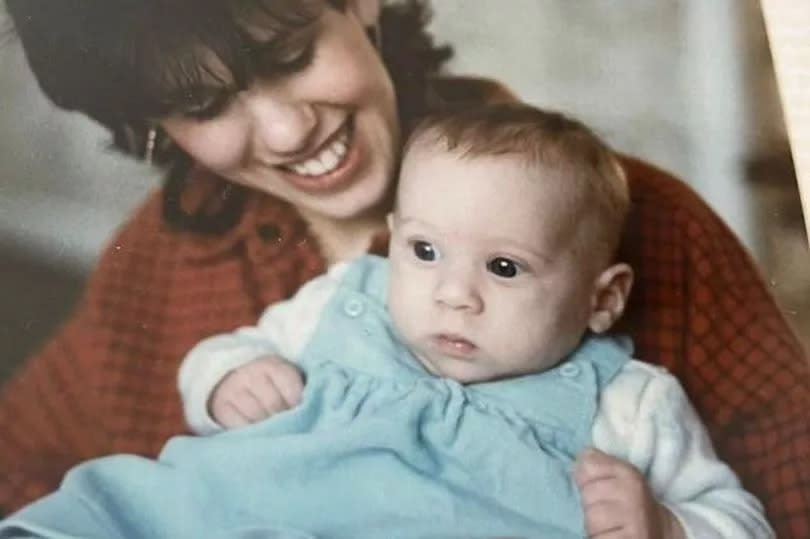
Karen, too, experienced a host of frightening symptoms which left her family worried. “I was showing signs of euphoria, which can be normal when you're breastfeeding but I was too euphoric. I wasn't sleeping,” she continued.
“If you've never come across it before, I don't think you know what's happening. You don't see the signs until you're too poorly.
“By Sunday or Monday, I was having a nervous breakdown. I knew I was poorly.
“Things were playing backwards. It doesn't make sense when I say it out loud, but when I was thinking, it was like watching a film going backwards - my brain was becoming so muddled.
“My mother was the one who said 'she needs help.”
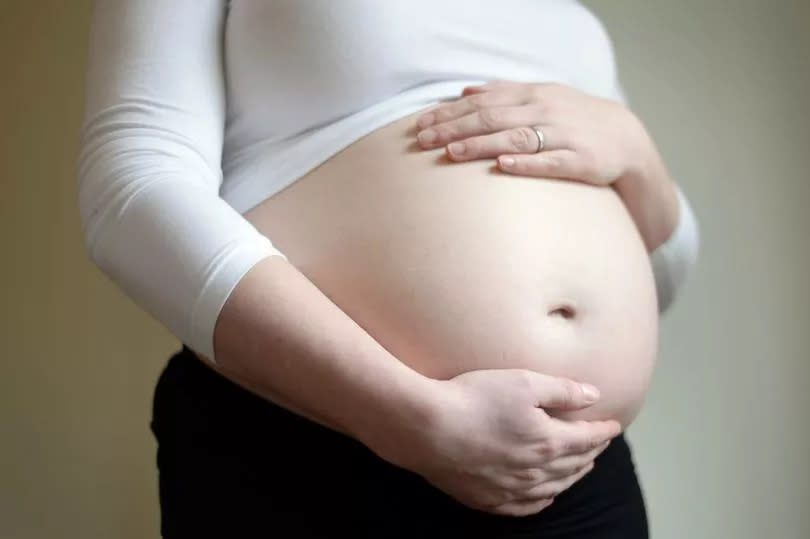
‘I put on a good show for doctors – but I was not on this planet’
Both women were back in hospital just days after giving birth. Hannah recalls the confusion of being in the midst of psychosis: “I was unable to sleep, overwhelmed, scared. I would see flashes out of the corner of my eye, hearing whispers, hallucinating.
“I had this fear that something terrible had happened or was about to happen to my baby. I never wanted to hurt my baby, I was very protective - it was my first thought.
“But then I just lost touch with reality, I didn't know what was real and what wasn't. I would wonder if I had a baby, was he there?
“Was it my fault if he wasn't, had I done something? I had a conversation with a midwife who saw what was happening and told me I needed to see a doctor.
“I went and sat there and unpacked a bag of stuff in front of the doctor - I have no idea why. There are lots of different experiences but for me, I was not on this planet.
“I was referred to a psychiatrist, I was sitting in the mental health waiting room and thinking 'I've got to get through this somehow. My baby was there, I don't really remember that appointment but I must have put on a better show than with the GP.
"They told me I was really depressed and anxious, and that I should take tablets and get some sleep. I didn't believe it but just went along with it to get out of there. But the reality was I couldn't function at all.”
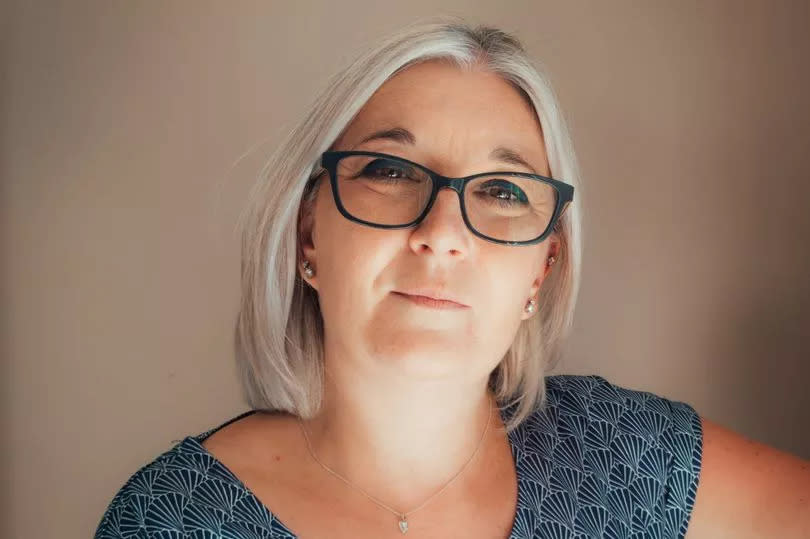
‘When the TV was on, there were characters who were people I knew and I thought they were talking to me directly’
Karen was sent to Salford Royal Hospital, she said: “I had multiple appointments with a GP and consultants and they told me I'd have to go into hospital, had they not coaxed me in I would have been sectioned.
“You're not necessarily alarmed when it's happening. Your thought processes just aren't the same.
“As I got better and remembered things, then I was more alarmed. I had been very tearful.
“When the TV was on, there were characters who were people I knew and I thought they were talking to me directly. In the middle of the night, I wasn't sleeping.
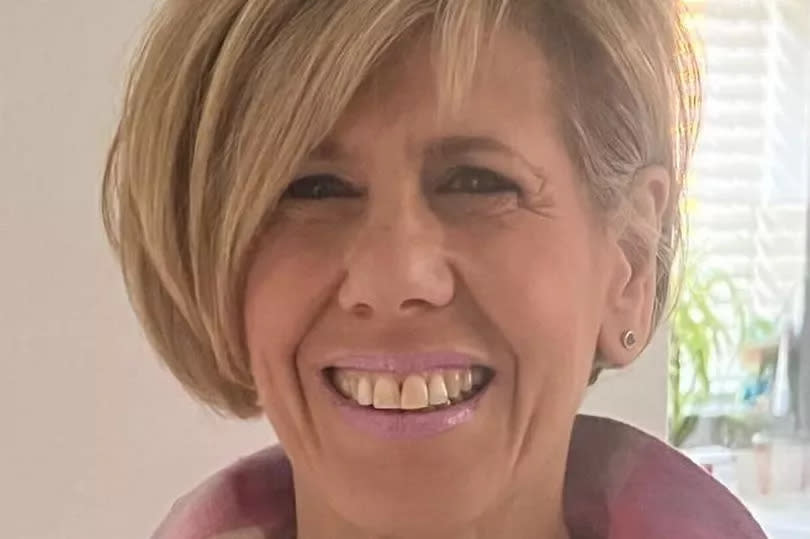
“I thought I had all the answers to the universe, and I knew all about God and creation. It sounds laughable now but it was terrifying at the time.
“I was losing it and it must have been so frightening for my family to see. There was a day I was crouched in the bath like a baby, my father found me like that.
“Time seemed to go so fast I'd wonder where the time had gone but you don't have a concept of time. I was aware I had a baby. But I’m not aware of too much of what happened.
“I knew people were helping me look after the baby at that point. I wasn't doing too much looking after this baby, although I was being encouraged to.
“I got treatment pretty quickly. Not everybody is fortunate enough to get the speedy consultation or recognise how bad it is.”
Karen and Hannah had to deal with being separated from their beloved babies early on – but say they are relieved to know mother and baby units are now in far better supply, as it can be vital for recovery.
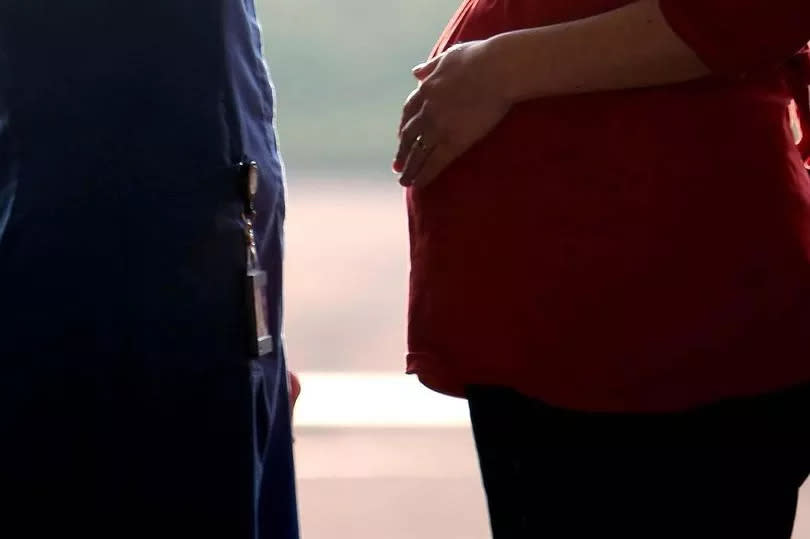
Karen said: “I was admitted to a general psychiatric ward. I was separated from my baby and I was very poorly.
“I would scream for food at people and I was having manic psychotic episodes. I was kept safe on a general ward but I didn't really get any better – I was suffering from burnout, becoming unresponsive, and quickly becoming even more unwell.
“It was during September that I had my baby and I was in hospital by the first week of October, rapidly escalating with symptoms. I spent about two weeks on a general ward and then I was put in a mum and baby unit at the end of October.
“When I was back with my baby and reunited, I started showing signs of getting better. But it was a long journey, I didn't get home before Christmas. I just had overnight leave before coming back home in January after three months.”
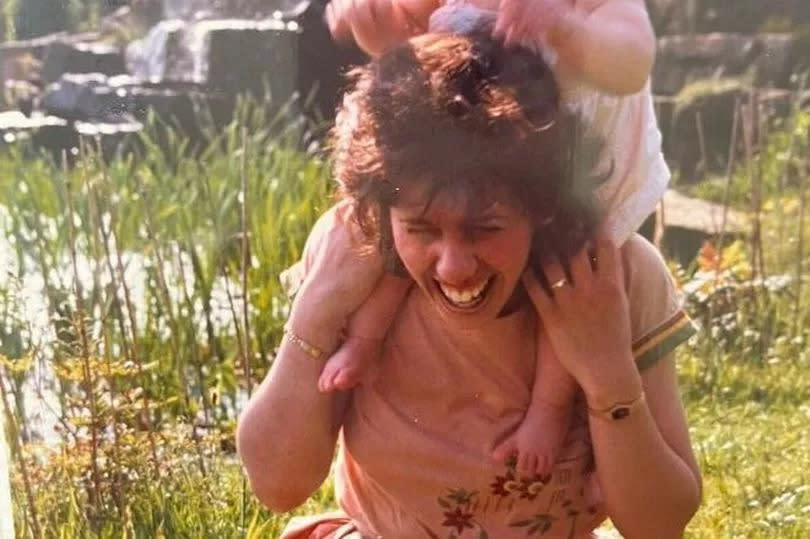
‘Back then, my treatment was electroshock therapy’
Hannah was placed into ongoing recovery with a local mental health support team coaching her through the next years. For Karen, the story of her treatment was quite different – and it’s only now that she is bravely speaking out about what mental health care was like years ago.
“My ex husband came in the ambulance. My baby and my parents followed to the hospital,” she shares.
“I was admitted, given an injection and for 12 hours, I don't know what happened.
“You lose your inhibitions. I was a handful because I wanted to go home and was demanding I go home.
“I was put on medication and then I was given electroshock therapy. That was something they believed would do the trick.
“I have to say it's something they might not recommend so readily these days. I broke down many months later because of it – but it worked.
“I was quite nervous afterwards. I had increased my medication slowly and then I appeared to be getting better. So the doctors allowed me to come out of hospital two weeks later.
“I want to say with my parents, we didn't speak about it at the time. It was a taboo subject.
“I only heard about electroshock therapy because someone in the family had it for ordinary depression. I was told at the time by my mum not to discuss it, people wouldn’t understand and that there was a stigma.
“So I never discussed it with anyone until recent times when I became involved with APP. (Action on Post Partum Psychosis)”
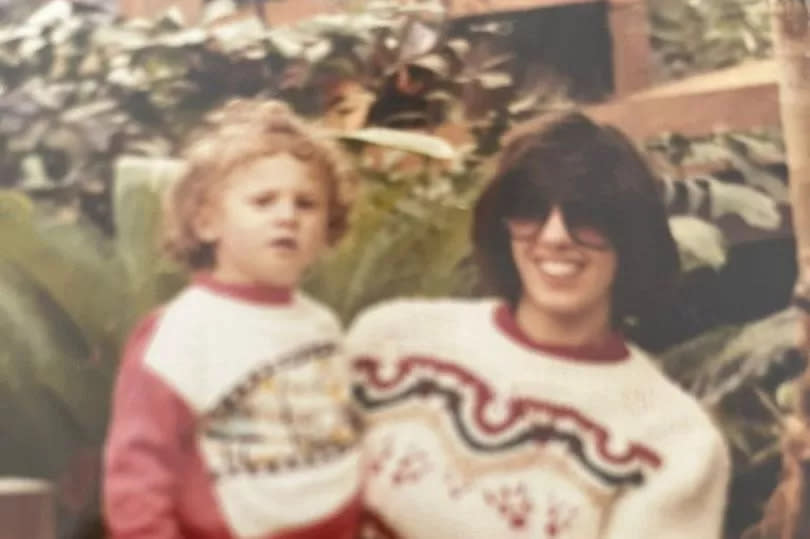
Karen has reached acceptance about the difficult treatment she faced because of the era in which she had postpartum psychosis: “I’ve accepted I won’t have had the life I would have if I hadn’t been treated with electroshock therapy.
“At that time, that was the path for me and it worked, it might not work for everybody.
“You watch some people suffer, going in and out of mother and baby units and doctors can’t quite get it right. So when something works for you, you get to avoid that hell.
““During my treatment as an outpatient, I started going backwards slowly. I had a nurse come to stay with me for a few months as my husband worked long hours.
“I started to make myself do things because I knew I’d be on my own soon. Six months on, I was getting back to my old self, but there was always that feeling of would it come back? It took me a long time to prove to myself that it wasn’t going to happen again.”
‘It was like life had been shattered into a million pieces - but almost all women will recover’
Both new mothers, who had never been mentally unwell before, began ‘picking up the pieces’. As Hannah explains: “I didn't really know what on earth had happened.
“I wasn't depressed after, which was very fortunate. But I was very anxious about where to go from here and how to put my life back together.
“It was like life had been shattered into a million pieces. Picking it back up again was difficult, I didn't know where those pieces went.
“You're also trying to fit your new identity as a mum in the know. It was supposed to be a happy and joyful time.
“I had slow but steady improvement and went back to work. I was eventually discharged from the mental health team – and a lot of the information I was given was from the APP website.
“It was only when I was getting peer support training through APP in 2012 that I first met someone else who had experienced this condition. There's a lot of shame and stigma attached. If I'd put it out there I might have found more people like me.”
Karen, too, only met people who had also suffered from postpartum psychosis through her involvement with the charity, decades on from her ordeal.
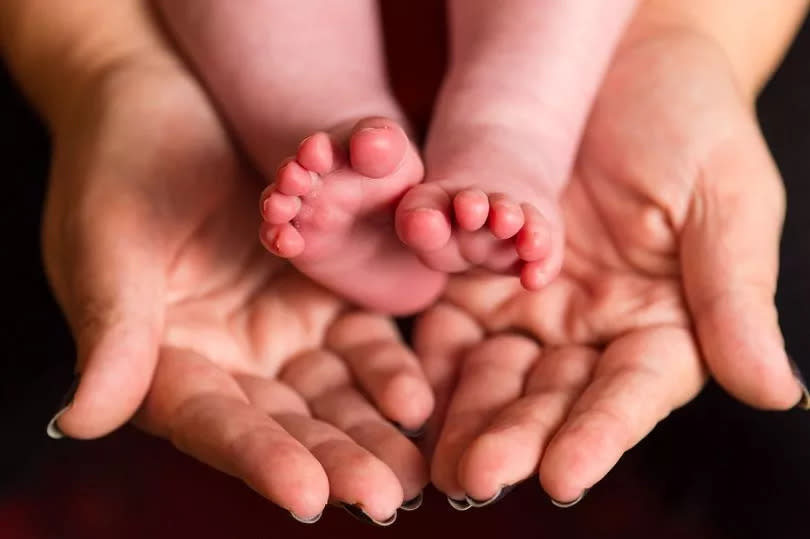
The risk of having more children
After experiencing postpartum psychosis, many families are left with the looming question of what to do about having more children. Both Karen and Hannah ruminated on that dilemma – and came out with different answers.
“My first consultant said to me that they advised not to have another child for three years as they couldn’t guarantee I wouldn’t be back in hospital with my mental health again. When my daughter was five, I wanted to find out how likely that was,” said Karen, of her experiences in the early 90s.
“I'd always intended to have at least two or three children. But it’s not like we had a crystal ball at the time.
“I was told I was at the bottom of a severe list in terms of how bad my episode was. There were options of getting lithium to treat the issue, or being taken into hospital before the baby would be born – that would have been at the start of the 1990s.
“Either way, nobody could give me an answer whether or not it would happen again. I decided it would be selfish if I ended my pregnancy in hospital and became ill afterwards, what would that do to my child?”
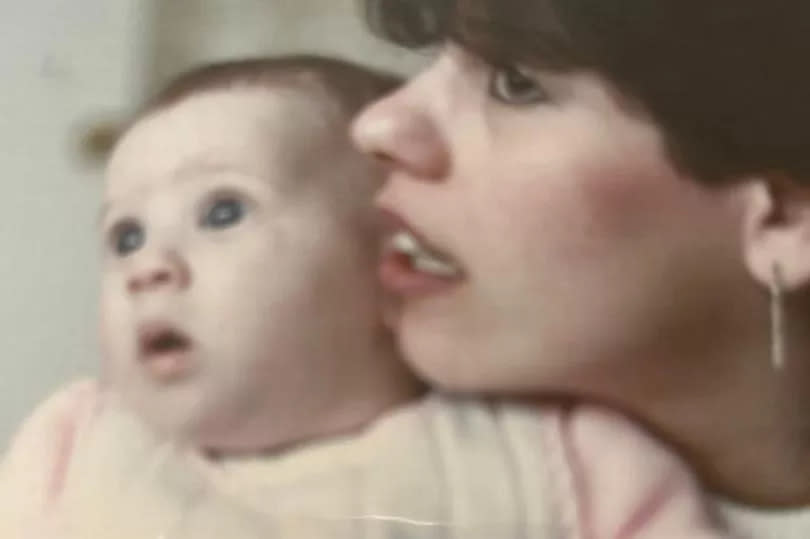
For Hannah, knowledge about the illness appeared to have moved on and her family decided to go ahead with another pregnancy – she welcomed her second boy in 2013.
“Years later, I was told that if I wanted to have another baby, I should come back to the mental health team and it's something they could support me with. It's a personal decision but I wanted to have two children,” she said.
“If the only reason was postpartum psychosis, it wasn't a good enough reason for me. It's very personal but part of the problem the first time round was not knowing what was happening. I knew it couldn't be as bad if it happened again because I would know what was happening.
“The midwives were shocked to see me back and didn't know what to do. My pregnancy was straightforward, the mental health support did come but not until later in the pregnancy - I now know that, because I was well, I didn't pass the threshold for help.
“Now, that help does exist and APP even offers pre-conception advice. There's lots of information out there - I didn't have anything else offered to me and eventually saw a psychiatrist but it was very late in my second pregnancy. Recurrence was a risk, I was told it was about 50-50.
“It was a scary time but trying to not make it all about postpartum psychosis was the story of that pregnancy. We wanted to make our plans then, if the worst happened, we knew what to do. In the end, it was a different experience to my first birth.
“I had a four-year-old at that point, I didn't want him to be exposed to me being unwell again if that did happen. So we wrote everything down, put a plan in place, who does what if I became ill. We made advanced decisions and that was really helpful.
“For some people, it's not worth the risk. I felt it was for me, there is help and support out there.”
Building awareness - slowly but surely
Many families have still never heard of postpartum psychosis, but through their work with Action on Postpartum Psychosis (APP), the two women are trying to tackle that.
“I am now part of a team educating health professionals, I speak to psychiatric nurses, prenatal midwives. They are learning about postpartum psychosis symptoms as part of their training,” said Karen, an APP peer supporter and now grandmother-of-two.
“Doctors are becoming more aware, there’s still many who have never seen it but the education out there is better. The fact we’re able to talk more about mental health issues, especially after what we’ve all gone through with Covid-19, has helped the situation.
“Still, you go to classes at hospitals and nobody really discusses postpartum psychosis. They talk a lot about postnatal depression, or how it’s normal to feel tearful and down, and how to look after yourself through that. But postpartum psychosis is often not mentioned.
“This is why we’re trying to educate people on how to handle it correctly. It’s often a partner or family who will notice the signs first – it’s rare and frightening for new mums but it’s classed as a medical emergency.
“The first thing I wanted was to ask someone else – through organisations like APP, we have that now, either face-to-face, over the phone, on a video call. I wish that had been available for me.”
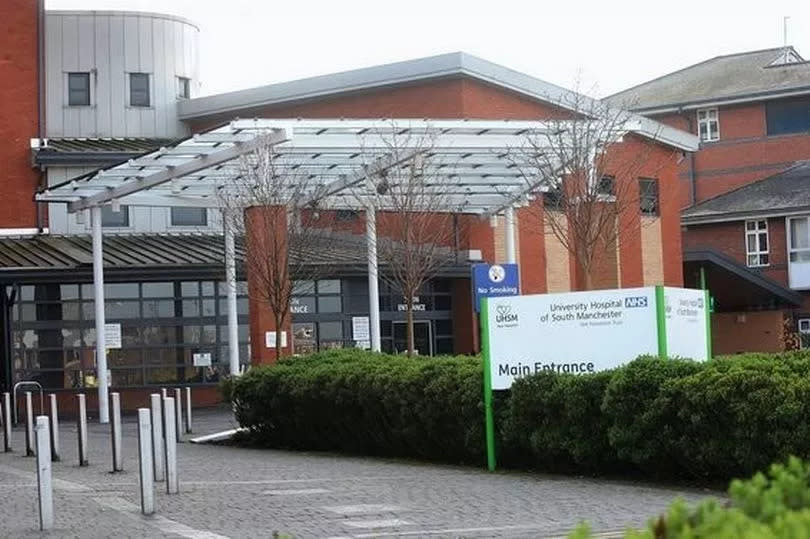
The NHS now formally partners with APP across the north west, and APP staff give advice and reassurance to NHS patients. Most recently, a new partnership between Greater Manchester Mental Health NHS Foundation Trust (GMMH) and the national charity has created an invaluable peer support service for new mums.
The support, along with other locations in the north west, is being given out at the mother and baby unit at wythenshawe-hospital>Wythenshawe Hospital, which supports families where there has been mental health illness following birth.
APP also runs peer support café groups for anyone in the region who has been affected by postpartum psychosis at any time in their life. The charity is currently recruiting for someone who has experienced postpartum psychosis to join the team as a part time peer support worker, alongside a range of other paid and voluntary lived experience roles.
Adam Morris, Service Manager at Greater Manchester Mental Health NHS Foundation Trust said: "The role that peer supporters play cannot be underestimated - they provide valuable emotional and moral support and enable women to see first-hand that they are not alone, and that recovery is very much possible.”
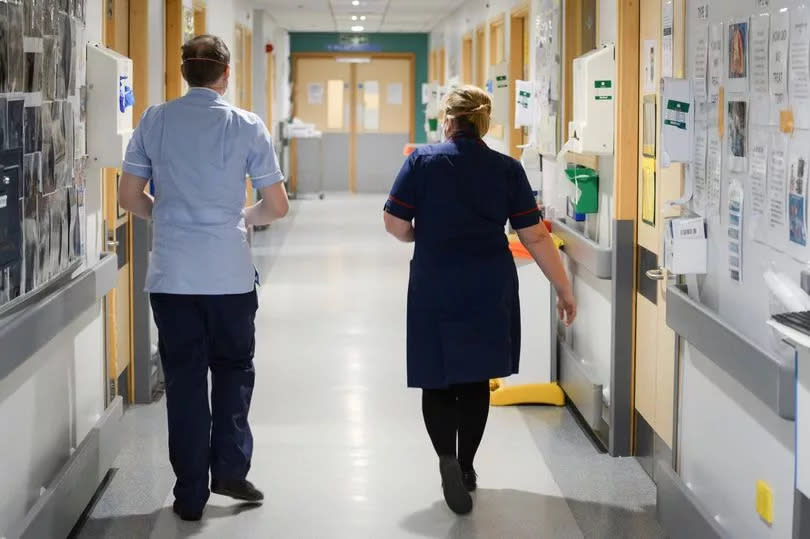
‘People say we shouldn’t scare mums, but the alternative is much worse’
“I don't think there's enough said about how people function in society after severe mental illness or how seriously it can impact people's lives,” says Hannah. “Everybody should know what a mother and baby unit is for, doctors and nurses should know that it's an emergency psychiatric situation, how keeping mum and baby together is important for that bond to be kept and for recovery.
“Families should be able to speak to someone who has been there, a peer supporter who can explain what's happening when they are asking what on earth is going on. No two episodes are the same, but we can get better and that's a powerful thing - in the early days, we just need to be kept safe.
“My experience is not that long ago, but in perinatal health it is a long time, because there has been a lot of investment and advancements. Public awareness is improving, it's definitely better than it was.
“But there's places where it's not known at all. Even the word psychosis is still scary.
“So that's why we're trying to do some work around ante-natal campaigning - and that includes with nurses and doctors who you'd think would know. Of course, they've got to know about a lot of things, but nobody told my husband what to do. I was told to see if I could hold on til the morning or call for an ambulance. A lot is put on families - mum and baby units take that pressure off, preserving family relationships to allow people to be unwell with medical professionals there to support you.
“Lots of people say we shouldn't scare mums by telling them. I can tell you it's more scary to have it happen and not know it's treatable versus knowing it can be treated and that you can get the help you need.”
For more information from the NHS, head here. For more on APP - including details on getting urgent help and treatment - go here.

 Yahoo News
Yahoo News 
